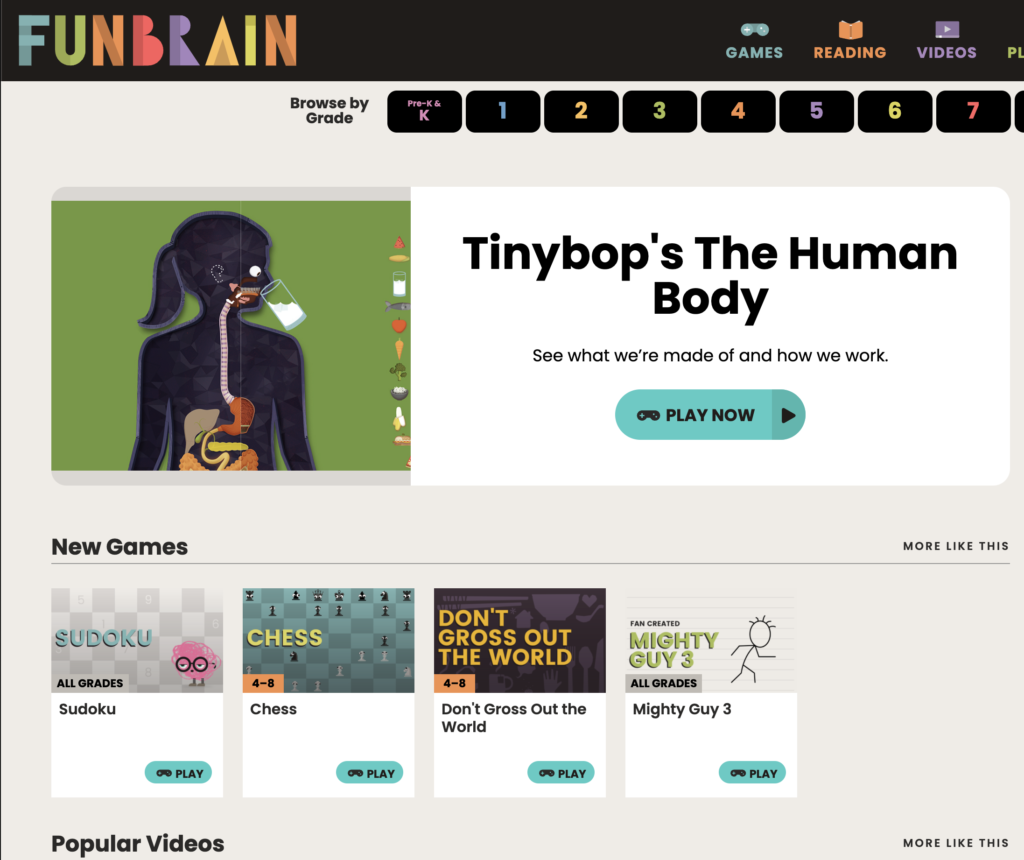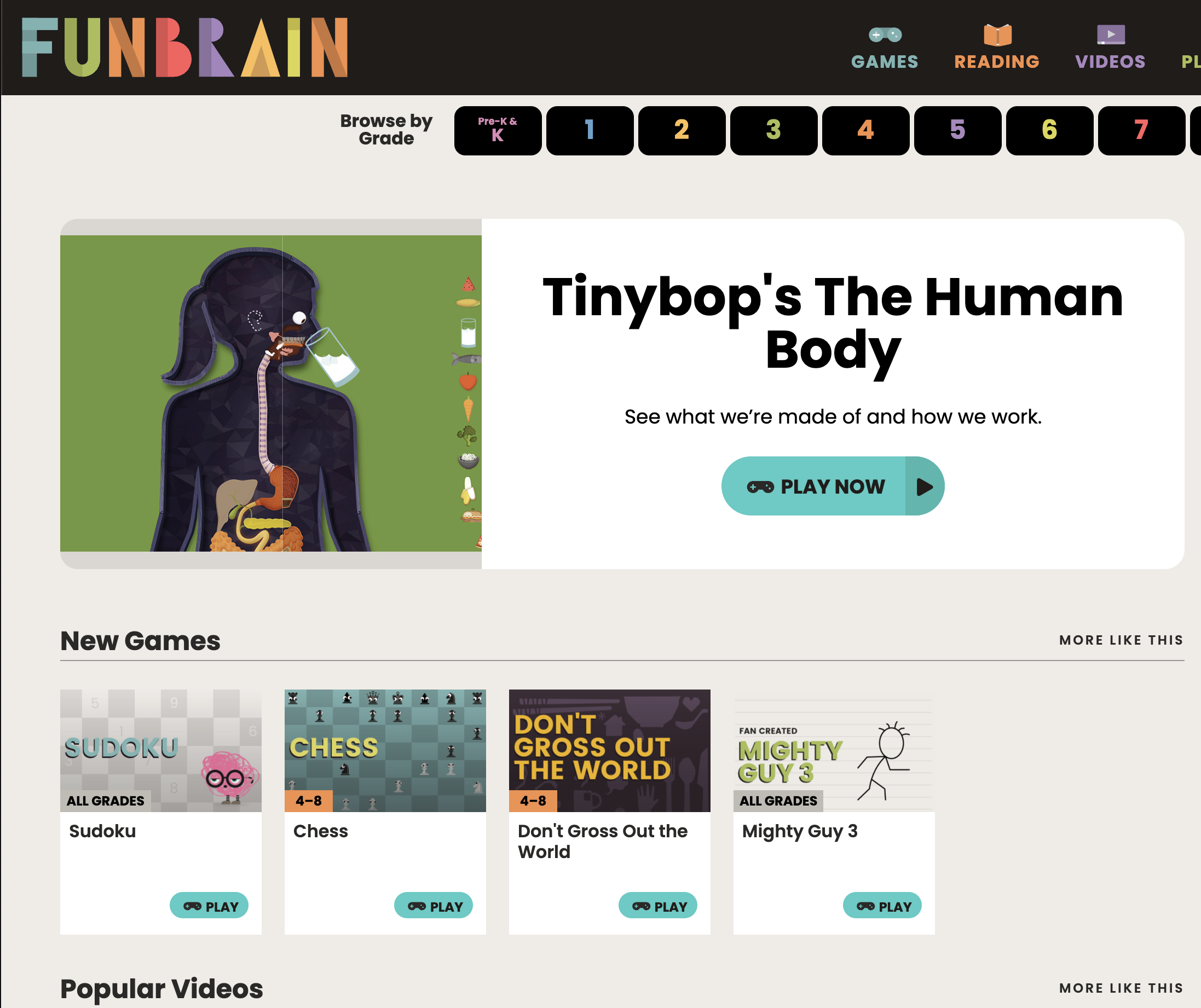Throughout this class, as we’ve discussed genre, we’ve also pondered the definition of a game itself. Through both broad and narrow definitions, the lines drawn seem largely up to interpretation. Ultimately, the discussion was mostly intellectual in nature, and wouldn’t have real world consequences.
Or so I thought.
This week, we were tasked to play educational games, including ones at funbrain.com. The homepage for the site looks relatively inviting as first glance, if not fairly boring and unexciting. I chose to click the game advertised most significantly by the homepage, “Tinybop’s The Human Body.” Going off the name, I’m sure it’s a some type of dark, body-horror adventure that takes a deep look at the human condition.

I kid, but the minimum of my expectations were that it was something resembling… well, a game. Even if this resemblance was in the most surface-level way, i.e. the “chocolate-covered broccoli” Profs Jagoda and Sparrow discussed in lecture. As seen in the screen grab of the homepage, this expectation is reinforced by the language and graphics of the page: there is a clear “PLAY NOW” button, that is even accompanied by the image of a video game controller.
Yet when I opened it, it became clear that this “game” was nothing more than an interactive interface to learn about the human body. It didn’t even try to add chocolate to the broccoli. The interface itself is fairly well constructed and in-depth. However, the perception of false advertising leaves a bad taste in my mouth. Even the game-page itself continues to refer to this thing as a “game,” though it is no more a game than a computer’s operating system is a game.
Instead, I felt more inclined to interact with it had it been sold for what it was: basically a digital, interactive textbook.


Your description of the bad taste that disappointment left in your mouth reminds me of the beginning of the quarter, when I was unjustly prejudiced against interactive novels. My mother always said “expectations lead to disappointments”, which is circular, I know, but it helps as a heuristic to figure out what’s causing the dissonance. What is our expectation from games? Why have I, like many others, felt the need to be gate-keepy about what is or isn’t a game? Is this attitude helpful, and if so, who does it help?
When educational games are advertised as “games”, and they turn out to be “interactive novels”, who is harmed in this marketing scheme? Children probably click it and go through the interface, maybe learning a thing or two. Perhaps they won’t have an insane amount of fun, and perhaps neither will you, but this game’s goal is not to offer an FPS experience, or a mystery puzzle to solve, or numbers to crunch to min-max efficiency… its just a narrative of the human body! It’s like “Gone Home” in a way, you interact with small snippets and it forms a story. Your interaction modality is the gameplay experience!